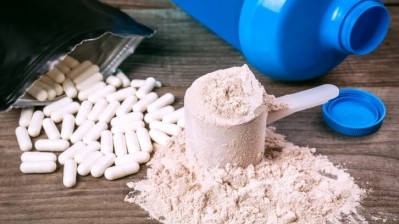New York State senate passes bill restricting supplements to minors

Lawmakers in New York State continue their pursuit to restrict the sale of some dietary supplements to minors following the Senate’s passage of Assembly Bill A5610D, a bill that limits access to some weight loss or muscle building products for people under the age of 18. Now the bill is in the hands of NY Governor Kathy Hochul.
Last December Hochul vetoed a similar bill voicing concerns that the state’s health department, which would have been tasked with determining what products are subject to the bill, lacked “the expertise necessary to analyze ingredients used in countless products, a role that is traditionally played by the FDA.”
The 2023 bill defines dietary supplements for weight loss or muscle building as: products labeled, marketed, or otherwise represented for the purpose of achieving weight loss of muscle building, but not including protein powders, protein drinks and foods marketed as containing protein unless those products contain an ingredient other than protein which would, considered alone, constitute a dietary supplement for weight loss of muscle building.
Examples of those ingredients include creatine, green tea extract, raspberry ketone, Garcinia cambogia, and green coffee bean extract, according to the bill.
Reaction
“We are disappointed that the New York Legislature chose to restrict access to beneficial consumer healthcare products by approving the passage of A5610D and its companion bill S5823C. Since last year, CHPA has collaborated in good faith with lawmakers across the country on legislation seeking to limit teen access to healthcare products marketed for weight loss. Unfortunately, each of these bills no longer apply simply to dietary supplements marketed for weight loss or muscle building, but to additional products which utilize a particular set of ingredients – many of which have useful applications in dietary supplements not intended for weight loss.
CHPA cannot support sweeping legislation that will restrict the use of other dietary supplements not intended for weight loss and that serve a legitimate health benefit for consumers who use them to support their overall health and wellness. We urge Governor Hochul to veto the legislation when it arrives at her desk,” said Carlos Gutierrez, vice president, state & local government affairs at Consumer Healthcare Products Association (CHPA).
Daniel Fabricant, president & CEO of the Natural Products Association (NPA), said that the NY state assembly and senate is simply ignoring the facts and wrongfully implicating supplements.
“As we have been pointing out for years in testimony, testimony that led to a similar bill being vetoed prior by the governor, there is no data point, no adverse events at FDA that provide any associational link on dietary supplements to eating disorders. After getting the last bill vetoed, now these lawmakers have doubled down in an even worse manner by unscientifically targeting ingredients like creatine, one of the most well-studied and researched chemicals on the planet, to limit all New Yorkers choices when it comes to self-care with natural products. Watching governments go from “trust the science” to completely ignoring the science is why people have lost faith in those institutions. People want a say in maintaining their health and wellness,” said Fabricant.
In order to combat such bills with facts, the Council for Responsible Nutrition (CRN) funded a review of the scientific literature pertaining to eating disorders and dietary supplements. The research, published in Nutrients, concluded: “The evidence to date does not support a causative role for dietary supplements in eating disorders. The use of dietary supplements for weight management in both male and female teens appears to be declining, and the objective of weight loss is not observed as a common motivation for the use of dietary supplements among this age group.
The study’s author, Susan J. Hewlings, PhD, RD, noted that there is some evidence to suggest a potential link between the use of some products and a future eating disorder diagnosis. “However, this appears to be more of a symptom or associated behavior potentially valuable as a screening tool as opposed to demonstrating causality. Therefore, it may be reasonable to state that the abuse, not use, of certain supplements may be associated with an eating disorder rather than being a risk factor.”
Hewlings told NutraIngredients-USA that she is very disappointed about the vote. "To me, they voted against scientific evidence and against the best interest of anyone suffering from an eating disorder. I am, however, confident that by working together the industry can make sure science and reason are heard and have a good chance to make sure this bill does not go any further. I will continue my efforts to communicate the facts."
“As we’ve stated before, there is no scientific substantiation demonstrating a connection between supplement use and eating disorders. Unfortunately, elected officials are being led to believe perfectly safe and effective nutritional supplements are the root cause. This is a very complex issue that is not solved by ‘quick fix’ tactics that only offer false hope. We hope Governor Hochul will recognize that and, once again, veto the bill when it is presented to her," stated Julia Gustafson, vice president, government relations, CRN.
It's “NOT over”
“This is NOT over, similar to the last bill that passed to restrict supplements, we still have a window, albeit a smaller one, to have our voices heard,” said Fabricant. “We urge all in New York who are in the industry, or have it as an integral part of their self-care regimen to go to npanational.org and click take action and tell the assembly and the governor’s office that creatine isn’t a crime and to respect our choices when it comes to staying healthy.”
















